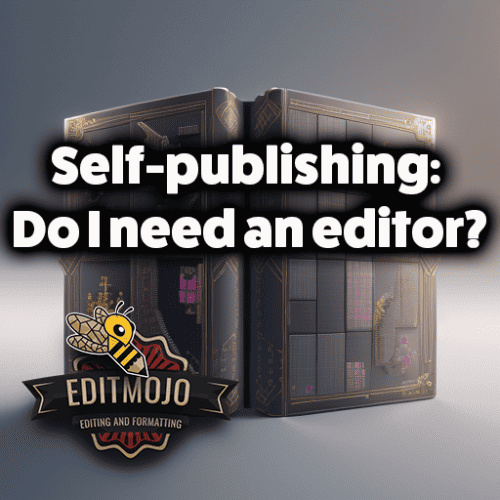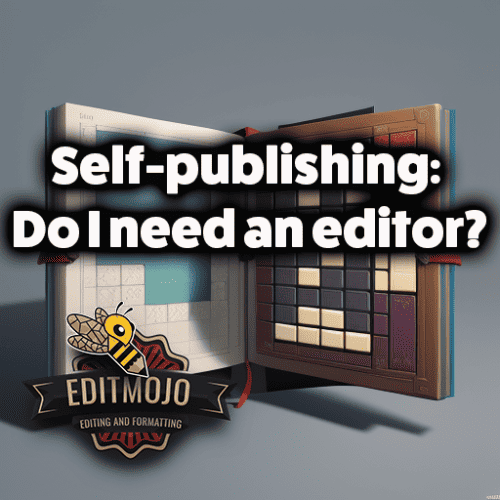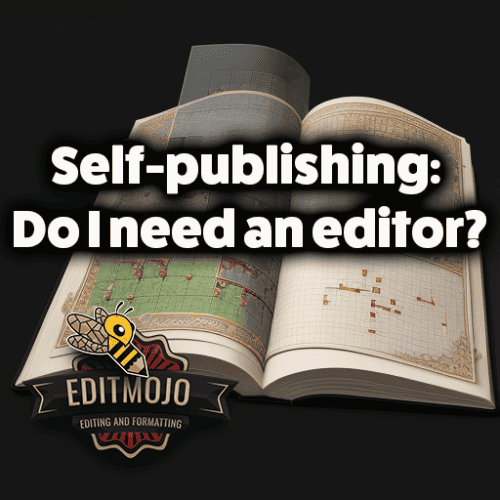Self-publishing: Do I need an editor?
Self-publishing: Do I need an editor? Self-publishing—once considered the last resort for authors who couldn’t bag a traditional publishing deal—is now a popular route chosen by many writers. They appreciate the control and ownership it offers, but a lingering question remains—do I need an editor?
In traditional publishing, an editor’s role is paramount, but in the self-publishing realm, the lines blur. To answer this question, let’s delve deep into the value of editors, the arguments for and against hiring them, technological aids, budgeting, and finding the right fit.
Key Takeaway Table
| Key Points | Takeaway |
|---|---|
| Role of Editors | Editors are creative partners who help refine and polish a manuscript. They can be developmental, line, or copy editors, each with a unique focus. |
| Editor vs. No Editor in Self-Publishing | Hiring an editor enhances readability, provides professional perspective, and corrects errors. However, cost, fear of losing authenticity, and time are potential drawbacks. |
| Technological Aids in Self-Editing | Tools like Grammarly and ProWritingAid can help catch grammatical errors and improve style but are not foolproof and cannot replace the comprehensive analysis of a human editor. |
| Budgeting for an Editor | Though editing services can be pricey, they are often a worthy investment as they increase the quality of the published work, potentially leading to higher reader satisfaction and sales. |
| Choosing the Right Editor | Choosing an editor is a personal process. Consider factors like the editor’s experience, their familiarity with your genre, their editing style, and your comfort level in communicating with them. |
| Hybrid Editing Approach | A blend of self-editing using technological tools and professional editing can be a cost-effective solution, leading to a high-quality manuscript while keeping expenses down. |
The Role and Importance of Editors in Publishing
Imagine creating a sculpture. You’ve chiseled away the excess stone, but you need a keen, external eye to capture the overlooked rough edges. This is what an editor does to your manuscript. They are your creative partners who help carve your rough manuscript into a polished piece of art.
Different Types of Editors
First, let’s understand the different types of editors:
- Developmental Editors: They work on the ‘big picture’ aspects of your book—the plot, characters, structure, pace, and consistency.
- Line Editors: They dive deeper into your manuscript, focusing on paragraph structure, sentence flow, language, and style.
- Copy Editors: These are your grammar gurus. They proofread your work for spelling, punctuation, syntax, and formatting errors.

Value of an Editor
An editor provides a fresh, professional perspective that can enhance your book’s quality significantly. They can transform your ‘good’ book into a ‘great’ book, catching errors you might miss and providing invaluable feedback. This process was instrumental for J.K. Rowling whose editor suggested emphasizing the friendship between Harry, Hermione, and Ron in the first Harry Potter book, leading to a deeper, richer narrative.
The Debate: Is an Editor Necessary in Self-Publishing?
Arguments for Using an Editor
The benefits of having an editor are manifold:
- Enhancing Readability and Flow: Editors can make your writing more engaging, removing jargon and simplifying complex ideas.
- Professional Perspective: An editor provides a critical, unbiased view of your work, catching inconsistencies and plot holes.
- Error Detection and Correction: From typos to formatting errors, an editor ensures your work is immaculate before it reaches your readers.
Arguments Against Using an Editor
But there are reasons why some authors choose not to hire an editor:
- Cost Considerations: Professional editing can be pricey, and not every self-publishing author has the budget for it.
- Maintaining Authentic Voice and Vision: Some authors fear an editor may change their unique voice or alter their vision.
- Time Implications: Editing is a time-consuming process that could delay the book’s release.
From my personal perspective, hiring an editor has always enhanced the quality of my work, making the investment worthwhile. Yet, every author’s journey is unique, and what works for one may not work for another.
The Implication of Technology in Self-Editing
Today, technology offers several tools for self-editing. Software like Grammarly and ProWritingAid can help authors catch grammatical errors, improve style, and enhance clarity. However, while helpful, these tools aren’t foolproof.
They can’t detect plot inconsistencies, character development issues, or pacing problems that a human editor can. Yet, they are undeniably useful for a first pass to correct surface-level errors.

Budgeting for an Editor: Is it Worth the Investment?
Pricing for professional editing services varies widely, typically ranging from $0.01 to $0.10 per word. For a 50,000-word manuscript, that’s $500 to $5,000—a significant investment.
However, consider this: readers value quality. They are more likely to recommend, review, and, importantly, buy future books if they enjoy your work. Investing in an editor could enhance reader satisfaction, translating into higher sales and a loyal reader base.
Choosing the Right Editor for Your Manuscript
Hiring an editor is like finding a dance partner. You need to be in sync, respecting and understanding each other’s style. Here’s how you can find the right fit:
- Research: Look for editors who specialize in your genre. Read their testimonials and previous work.
- Sample Edit: Many editors offer a sample edit of a few pages. This can give you a sense of their editing style.
- Communication: You should feel comfortable discussing your manuscript with your potential editor.
Collaborating effectively with an editor can make your self-publishing journey smoother and more rewarding.
The Compromise: Blend of Professional Editing and Self-Editing
For authors on a budget, a blend of professional editing and self-editing can be an effective solution. First, use technological tools for a preliminary edit, then hire a professional editor for a final review. This hybrid approach was used successfully by E.L. James, author of Fifty Shades of Grey. She used beta readers and a professional editor to refine her originally self-published work, which later became a global bestseller.

Key Takeaways and Recommendations
Hiring an editor is a personal decision based on various factors—budget, time, writing experience, and confidence level. Here’s what I recommend: Always aim for the highest quality possible within your means. If you can’t afford a professional editor, leverage technology, beta readers, and writing groups. Remember, your goal is to give your readers the best experience possible.
Conclusion (Self-publishing: Do I need an editor?)
Embarking on the self-publishing route is an exciting journey. Whether you choose to hire an editor or not, remember that your readers appreciate quality. Give them a story they can’t put down, characters they can’t forget, and a world they can’t leave. And as always, keep writing, keep improving, and keep shining. Your readers are waiting.
Feel free to share your experiences and thoughts in the comments. Let’s learn from each other as we navigate the ever-evolving landscape of self-publishing.
Top Five Questions and Answers
| Questions | Answers |
|---|---|
| Do I need an editor for self-publishing? | It’s not mandatory, but hiring an editor can enhance the quality of your work. The decision depends on your budget, writing experience, and confidence level. |
| What is the role of an editor? | An editor refines and polishes a manuscript, focusing on enhancing the plot, characters, structure, language, style, and correcting errors. |
| Can I self-edit my book? | Yes, self-editing is possible, especially with the aid of tools like Grammarly and ProWritingAid. However, these tools have limitations and cannot replace a comprehensive analysis by a human editor. |
| How much does hiring an editor cost? | The cost varies widely, typically ranging from $0.01 to $0.10 per word. Thus, for a 50,000-word manuscript, the editing costs can range from $500 to $5,000. |
| How do I choose the right editor for my manuscript? | You can choose the right editor by researching, asking for a sample edit, and gauging your comfort level in communicating with them. It’s also essential that they are familiar with your genre. |
